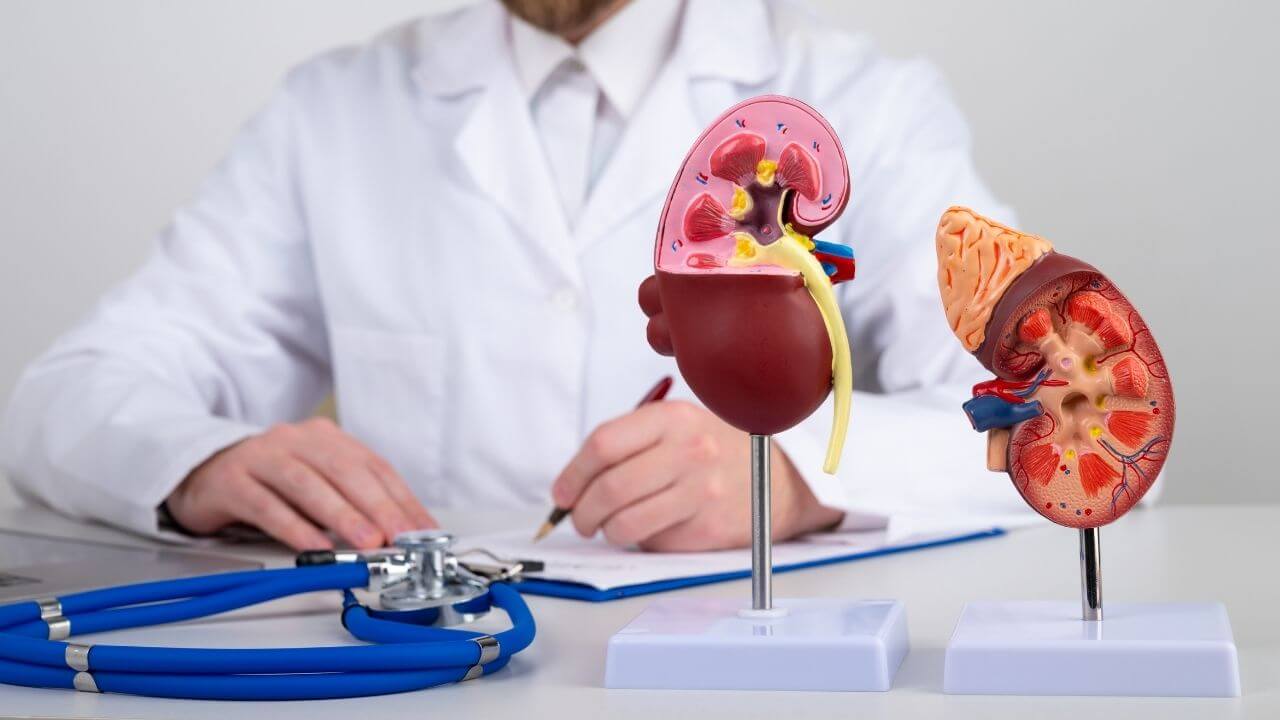Calls for Ukraine
Calls for Europe
Calls for USA

Kidney transplantation is one of the most commonly performed organs transplant surgeries. This surgical procedure is among the most significant achievements in the field of medicine. Kidney transplant surgery is necessary for individuals with the end-stage kidney disease and avoids dependence on hemodialysis. During kidney transplant procedure, doctors transplant a healthy kidney from a donor to a patient whose kidneys cannot function normally. This allows for effective management of kidney failure, restoration of normal excretory system functions, and significant improvement in the patient’s quality of life.
Leading medical centers worldwide perform kidney transplants and demonstrate high success rates. Although the kidney transplant price can be quite high, the demand for this procedure continues to grow globally.
Medour collaborates with clinics in different countries that specialize in kidney transplantation procedures. Thanks to medical tourism, you have the opportunity to choose the most suitable medical center, regardless of its location. A MedTour medical coordinator will help you make the right decision.

A kidney transplant procedure is required for people with stage 4 or 5 kidney failure. At these stages, the kidneys are irreversibly damaged and cannot perform their functions, which leads to disruption of water, electrolyte, and other types of metabolism, and has a noticeable negative impact on the condition of the entire body. As the disease progresses, there is a risk of kidney failure and patients become dependent on regular hemodialysis. Transplantation offers an effective solution to this problem.
The following diseases can lead to end-stage kidney disease:
Kidney transplantation includes several important stages:
Preparation for kidney transplant surgery includes a comprehensive examination of the patient who will undergo surgery, donor selection, and preoperative medical procedures.

Kidney transplant surgery is performed under general anesthesia and involves the following steps:
The surgery typically takes two to four hours.
After kidney transplant surgery, the patient stays in the intensive care unit for several days under the supervision of doctors. During this period, doctors monitor the functionality of the transplanted kidney and check for signs of acute rejection. Dialysis may be required temporarily until the new kidney begins to function properly. Once the organ begins to function normally and no acute situations arise, the patient is transferred to a regular ward and then discharged after some time.
Immunosuppressive therapy begins immediately after surgery. These medications suppress the immune system to prevent transplant rejection and must be taken for life.
Gradual physical recovery is recommended. Physical activity should be limited for 1.5 to 2 months, after which the patient can return to normal life.
Regular follow-ups and preventive check-ups are necessary to monitor kidney function and overall health.
When planning a renal transplant, the cost is determined by several factors. The price includes kidney transplant surgery and post-operative rehabilitation. Additionally, the cost may vary depending on whether the organ comes from a living donor or a deceased donor.
Prices for kidney transplantation vary by country. Healthcare systems in countries typically have protocols that govern procedures of this type, including pricing. Also, the cost may also differ between hospitals within the same country.
Approximate kidney transplant price in different countries:
If you are interested in prices in a particular country or clinic, please contact us. A MedTour medical coordinator during a free consultation will provide you with a price list indicating the cost of this medical procedure in different medical centers. Our specialist will also answer any questions regarding the transplantation in different countries.

The MedTour platform collaborates with the best clinics that perform kidney transplants in different countries worldwide. On our website you can find information about these clinics and the services they provide. Alternatively, you can contact a MedTour coordinating doctor, who will provide personalized recommendations taking into account your wishes and financial capabilities.
Among the most popular hospitals that our clients most often choose to undergo transplantation include:
How long can a person live with a transplanted kidney?
According to statistics, 85% of people with a transplanted kidney live more than 10 years. At the same time, several factors influence life expectancy after transplantation:
In addition, it is important which clinic you will have the operation in. Contacting leading medical centers that specialize in such surgical interventions can improve outcomes.
Can a kidney transplantation be performed a second time?
Experts believe that a repeat transplant is possible. However, it is determined on an individual basis, considering the patient’s medical condition. In some cases, dialysis may be a better option than a second transplant.
Factors affecting the possibility of re-transplantation:
Re-transplantation may be technically more difficult and the post-operative recovery period may be longer and more challenging. Therefore, a thorough evaluation by nephrologists, transplant surgeons, and immunologists is necessary to assess risks and benefits before proceeding.
What are the side effects of immunosuppressive therapy?
Immunosuppressive therapy is a mandatory part of post-transplant treatment. Its purpose is to suppress the activity of the immune system to prevent the immune system from reacting to the new organ as something foreign and to avoid transplant rejection. However, suppression of the immune system can lead to a number of side effects, including an increased risk of infectious diseases. The risk of developing certain types of cancer, such as skin cancer and lymphoma, may also increase. In addition, skin rashes, slow wound healing, increased blood cholesterol levels, and some other side effects may occur.
However, leading transplant clinics use advanced immunosuppression protocols to minimize side effects and ensure the best possible outcome for patients.
Patients who have undergone kidney transplant surgery report significant improvements in their quality of life. They highlight several key benefits of the procedure:
You can watch a video review of a patient from South Korea who had a kidney transplant at Liv Hospital in Turkey and was highly satisfied with the result.
For more information about kidney transplantation, please contact a MedTour coordinating physician. You can call us or fill out the contact form to get a free consultation.
Please rate the work of MedTour
